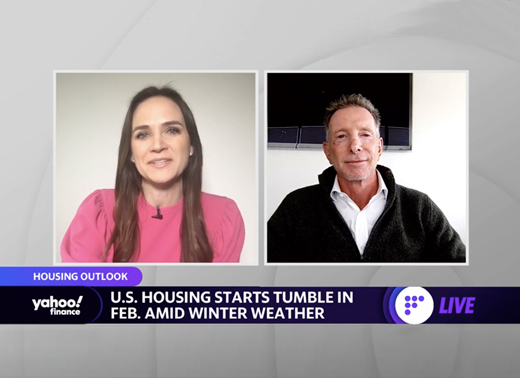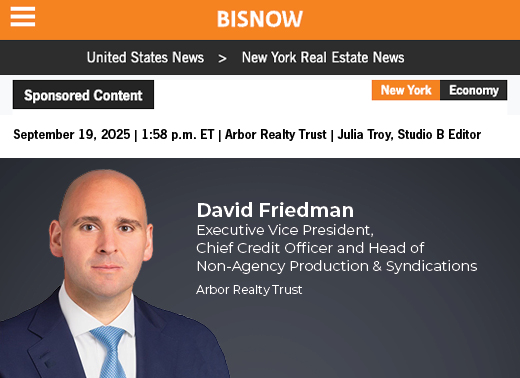Ivan Kaufman Shares His Housing Outlook on Yahoo! Finance

While construction starts were down in February, Arbor Realty Trust’s CEO explains why he’s optimistic about the housing market
Despite construction starts declining 10.3% in February, the housing market is in a great position for success, noted Ivan Kaufman, the founder, chairman and CEO of Arbor Realty Trust, Inc. (NYSE:ABR), in an interview with Yahoo! Finance’s Seana Smith and Jared Blikre.
“You have record appreciation. You have a creation of almost $4 trillion of wealth over the last 12 months. There’s not enough homes to go on the market for sale. People are hitting their asking prices. So I’m very, very bullish on the housing market,” Kaufman said. “I think there’s some temporary issues that are leading to those numbers. But I think overall, the housing market’s in a great space to win.”
Kaufman explained the biggest issue facing the housing industry is the lack of inventory available to meet surging supply.
“If you go to markets like Florida, Nashville, Phoenix, you don’t have the inventories. Homes come on the market, they’re sold. They’re selling for higher than the listing prices. So I think the abnormal demand that we saw due to COVID and due to the rapid drop in interest rates, that took a lot of the inventory.”
He added he expects in six to nine months, the market will begin to normalize and continue to grow throughout the year.
Watch the full interview here.





